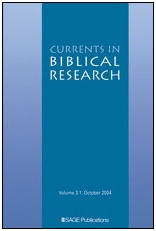 Today I’d like to begin blogging through Gregory Macdonald’s book The Evangelical Universalist
Today I’d like to begin blogging through Gregory Macdonald’s book The Evangelical Universalist
. The first order of business, which is his too, is to get this term “universalism” straight and I want to attach adjectives to his descriptions.
After reading Parry’s definition of “Christian universalism,” do you think it can be squared with the Bible? Do you think it can be squared with Christian orthodoxy?
He sees (at least) five kinds:
First, gospel universalism means that the gospel is for everyone whether a person believes or not. Gospel universalism is why there is a missionary movement.
Second, divine-desire universalism teaches that God wants everyone to trust in Christ. Thus, God’s desire is universal thought that desire can be frustrated by human choice. Most Calvinists would not affirm divine-desire universalism.
Third, effective universalism believes that everyone on planet earth who has lived, is living, and will live will in the end be saved.
Fourth, pluralist universalism believes that everyone on planet earth will be saved, regardless of that person’s religious faith.
Robin Parry, the actual author of this book (pseud. Gregory Macdonald), believes in Christian universalism, which we will define after the jump.
So, fifth, Christian universalism believes in all the classic evangelical and orthodox doctrines (Trinity, creation, sin, atonement, return of Christ, salvation through Christ alone, grace alone, faith alone) and also in hell. But, and here’s the big but, one’s eternal destiny is not fixed at death so that those in hell can repent and trust in Christ, and in the end all will make this decision without coercion.
Thus, this Christian universalism is not pluralism, it does not find redemption anywhere outside of Christ, it does not deny hell or final punishment for rebellion and sin etc, but it also affirms that death itself does not end a person’s consciousness or chance to respond to the grace of God.

